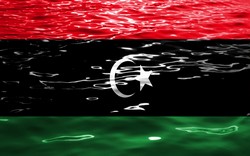EU water research supports Libya
Libya suffers from a water shortage crisis, an important challenge for its population that the EU can help with. The EU-funded WELL (Water and Energy for Life in Libya) worked on reinforcing the capabilities of the country’s General Water Authority and positioning it as a research centre of excellence in the fields of water and energy to meet socioeconomic needs. Focusing on governance within the policy-research-business triple helix, the project worked on facilitating the country’s participation in EU-funded programmes. It empowered local stakeholders to address energy and water issues, encouraging partnerships in the field with EU counterparts and opening job opportunities in the country, particularly for young scientists. In simpler terms the project aimed to initiate research to find solutions for current and future challenges in water and energy. Through its efforts, the project team sought to support stability in the country, bring it closer to joint EU projects and link related support schemes together. WELL also aimed on strengthening water and energy research, including impact assessment of initiatives in this direction. To achieve its aims the 2-year project brought together four partners from Libya and the EU. It analysed energy and water research requirements and opportunities, investigating research priorities, wastewater treatment technologies, energy technologies, and related environmental concerns. In terms of capacity building, the project outlined an in-depth plan for establishing the innovative chemical and biological laboratory for research on energy production, based on high-tech electrochemical reactions and devices. The laboratory would also assess wastewater and its microbiological content. In this context, an important project outcome is the new strategy for Libya’s General Water Authority aimed at creating the world-class energy and water research centre. This involved consideration of a business plan, quality control system and independent auditing of performance. Training and recruitment efforts supported all the aims of the project bringing much-needed expertise to Libyan stakeholders, while networking and dissemination activities ensured knowledge transfer between the greater region and Europe. The potential impact of the WELL project and the new research centre is expected to include socioeconomic benefits for Libyans and a contribution to stability of a geopolitically volatile area.



